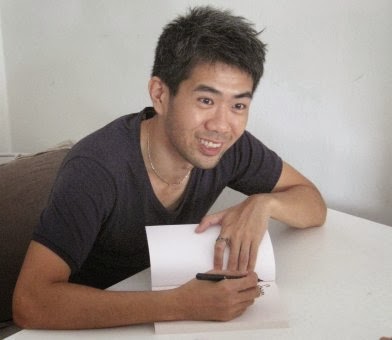Not everyone is happy, though. Here's a much-quoted excerpt of Mark O'Connell's critique of the Award at Slate: "The problem with the Hatchet Job of the Year Award isn’t just that it publicizes and rewards mediocre and shallow criticism by the kind of people who’ll shoot a baboon point-blank in the tits for their own amusement. It’s that it actively promotes such criticism, going out of its way to ensure that more of it gets written."
If O'Connell's rant is based solely on this year's shortlist, I don't think it's fair. The Award, founded by The Omnivore, is three years old - hardly enough time to build a body of "provocative or challenging or insightful" criticism "that makes an argument about and around a book" and "stands alone on its own essayistic merits".
And critics - whatever level of literacy - don't need much encouragement to write a hack job. The hatchet-job avalanche O'Connell dreads is happening - has he seen what's on Goodreads and Amazon? I believe that buried under the avalanche of throwaway one-liners are some real creatively cut gems.
What The Omnivore's encouraging is more thoughtful criticism of what's written out there. Nothing beats a skilful, witty takedown of a stack of written words performed with a surgeon's precision, as long as the positives in it are pointed out. Yelping about what's bad about Fifty Shades is too easy.
So this year's shortlist isn't as outstanding as, say, the one for the previous year. But if EL James's trilogy and its ilk deserve its place in the sun, so do the sharp words of their critics telling us why we should read something else - all in the vain hope that the reading public will wise up and writers will get better.
At least "the scathing takedown rip" that Buzzfeed's books editor Isaac Fitzgerald says is rife in "so many old media-type places" has more thought put into it than the stuff that packs the 'review threads' on some book-related social-media platforms. These days, takedowns appear to be more effective than praise in helping to popularise books.
But as more and more books are being churned out, it'll be tougher to separate the chaff from the wheat, and the book reviewer with too much on his plate will have to cut back on the scalpel-work. Other ways of reviewing books which the general public can better digest, like this "dialogic" marginalia on Dan Brown's Inferno, which USA Today says is the best-selling book of 2013, will slip into the mainstream.
By then, I expect that these hatchet jobs will get shorter, sharper and harsher as the volume of books overwhelm the dwindling number of reviewers because, well, who wants to take a scalpel to a 500-page monstrosity in the future when it's easier and much more fun to use an axe?
When that day comes, The Omnivore might need more than just one year's worth of potted shrimp to convince critics to think deeper before taking axes to bad books.
Categories:
Book Blab

























